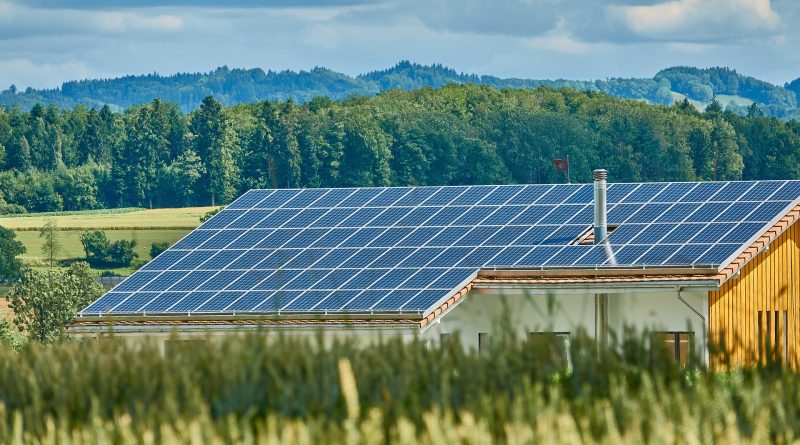Understanding the Significance of Solar Power Today
The Significance of a Solar Power System in Today’s World
Introduction:
In today’s rapidly changing world, the significance of renewable energy sources cannot be overstated. Among these, solar power stands out as one of the most promising options for a sustainable future. With the ability to generate clean energy from the sun, solar power systems have gained widespread attention and adoption. This article will explore the significance of solar power systems in today’s world, highlighting their environmental, economic, and social benefits.
Environmental Benefits
Solar power systems offer numerous environmental benefits, making them crucial to combating climate change and reducing our reliance on fossil fuels. Here’s why:
1. Reduction in greenhouse gas emissions: Solar power generates electricity without emitting harmful greenhouse gases, such as carbon dioxide, that contribute to climate change. By switching to solar power, we can significantly reduce our carbon footprint and mitigate the effects of global warming.
2. Conservation of natural resources: The sun is an abundant source of energy that is accessible to all. Unlike finite fossil fuel reserves, solar power harnesses an inexhaustible supply of energy from which we can generate electricity. This reduces our dependence on fossil fuels and helps preserve precious natural resources for future generations.
3. Protection of biodiversity: The extraction and combustion of fossil fuels often cause widespread destruction of natural habitats and ecosystems. Solar power systems, on the other hand, have a minimal impact on biodiversity. Since solar panels are typically placed on rooftops or in existing urban areas, they do not encroach upon delicate ecosystems or wildlife habitats, helping protect our planet’s rich biodiversity.
Economic Benefits
Solar power systems also offer substantial economic benefits, paving the way for a greener and more sustainable economy. Consider the following advantages:
1. Cost savings: Once installed, solar power systems can provide free electricity for decades, significantly reducing or eliminating monthly energy bills. Moreover, solar technology has become more affordable over the years, making it a financially viable option for homeowners and businesses alike. This is particularly advantageous in regions with ample sunlight, as the payback period for solar investments can be relatively short.
2. Job creation: The shift towards solar power has the potential to generate numerous job opportunities. The installation, maintenance, and manufacturing of solar panels require a skilled workforce, creating employment opportunities and promoting economic growth. Additionally, investing in solar power systems can diversify a country’s energy sources, reducing its dependency on imported fossil fuels.
3. Economic resilience: Solar power systems provide a decentralized energy source, meaning electricity can be generated locally rather than relying solely on centralized power plants. This enhances energy security and resilience, as solar power is less prone to supply disruptions caused by unforeseen events or geopolitical tensions. By promoting energy independence, solar power systems can improve a country’s economic stability and mitigate the impacts of energy price fluctuations.
Social Benefits
Beyond the environmental and economic advantages, solar power systems offer several social benefits that foster a more inclusive and equitable society. Here are a few examples:
1. Access to electricity in remote areas: Solar power systems can provide electricity to remote communities that are not connected to the conventional power grid. This allows for the provision of essential services, such as healthcare and education, which are often taken for granted in developed regions. By bridging the energy gap, solar power systems contribute to the social development and well-being of these underserved communities.
2. Energy affordability and equity: Solar power democratizes access to energy, as it allows individuals and communities to harness their own electricity. This empowers households to reduce their energy costs, freeing up funds for other essential needs. Moreover, solar power systems help create a more equitable energy landscape by providing low-income households with affordable energy options and reducing energy poverty.
3. Educational opportunities: The proliferation of solar power systems presents an opportunity for education and awareness-building on renewable energy. By integrating solar technology into school curricula, we can equip future generations with the knowledge and skills needed to embrace sustainable practices. This not only contributes to environmental stewardship but also fosters innovation and entrepreneurship in the renewable energy sector.
Conclusion:
As we navigate the challenges of climate change, it is clear that solar power systems play a crucial role in creating a sustainable and resilient future. The environmental benefits of solar power, including reduced greenhouse gas emissions and preservation of natural resources, cannot be overstated. Additionally, solar power offers significant economic advantages, such as cost savings and job creation, while also empowering underserved communities and enhancing energy equity. By embracing solar power, we can pave the way for a brighter and cleaner future for generations to come.



